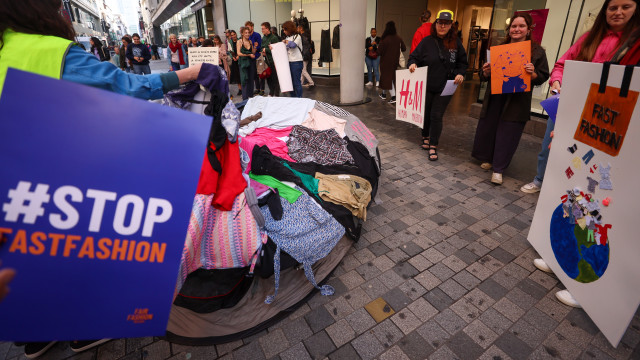MEPs have voted to cut 40% of food waste generated by households, retailers and restaurants by 2030, while tightening rules on textile waste linked to the so-called "fast fashion".
According to Brussels estimates, the 27 countries of the bloc generate 60 million tons of food waste annually - or 131 kilograms per person. This represents a loss of about 132 billion euros ($144 billion).
The main aim of the new legislation is to reduce food waste, and therefore the amount of water, fertilizers and energy used to produce, process and store food that ends up being thrown away.
Parliament rapporteur Anna Zalewska said "targeted solutions" to reduce food waste could include promoting so-called "ugly" fruit and vegetables, clarifying date labeling and donating unsold but edible food.
The proposal also creates new obligations for the textile sector, requiring manufacturers to foot the bill for the collection, sorting and recycling of clothes, but also everything from carpets to mattresses, under the responsibility of Member States.
Less than 1% of the world's textiles are currently recycled, the EU estimates, with 12.6 million tonnes of textile waste generated in the bloc each year.
The proposal, which is part of the EU's Green Deal environmental initiative, was backed by 514 MEPs, 20 against and 91 abstentions, and will now be put to member states for negotiation.
The major reduction in food waste is more ambitious than what the European Commission envisioned when the proposal was first presented last year, and lawmakers want an even higher target of 50% by 2035 to be considered.
MPs also supported higher targets for reducing waste in food processing and production, doubling from 10% to 20% by 2035. /BGNES







